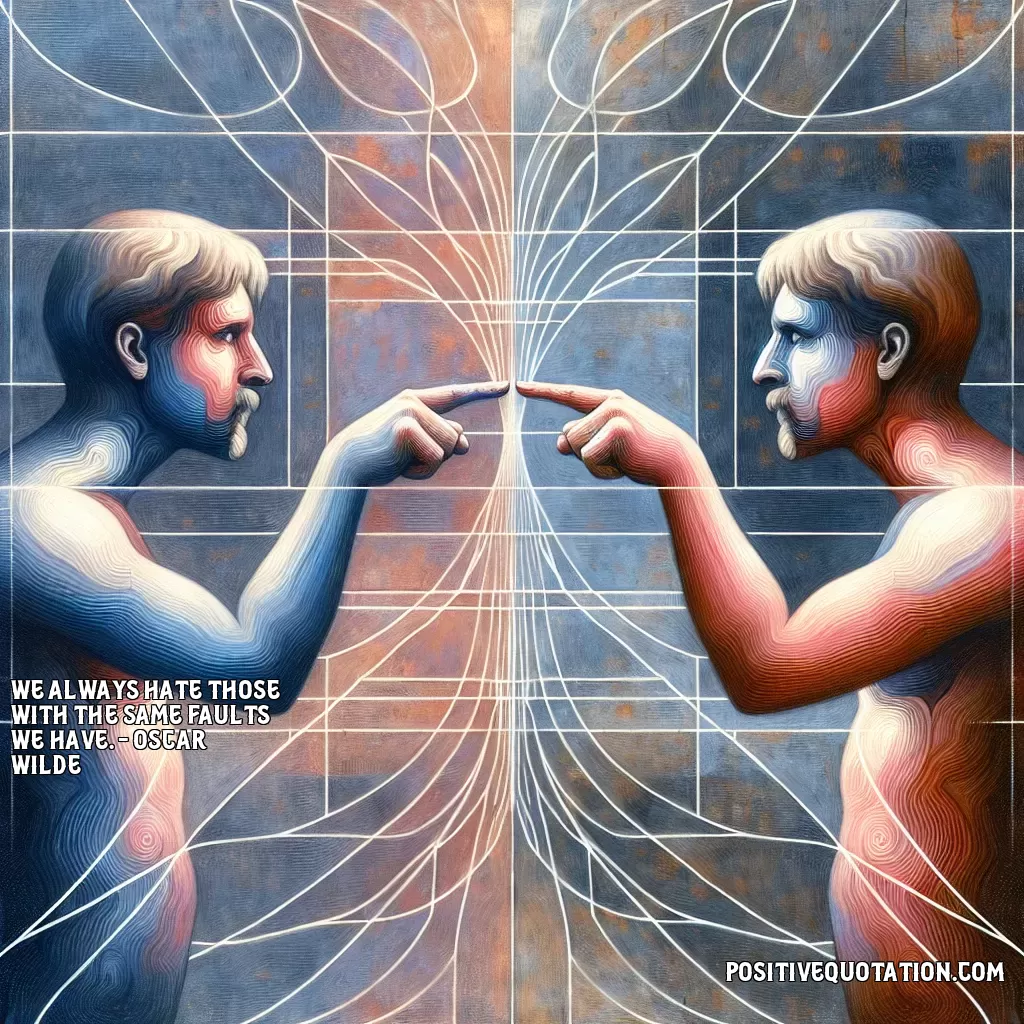
We always hate those with the same faults we have. - Oscar Wilde
Oscar Wilde's quote, "We always hate those with the same faults we have," shines a light on human nature's propensity for projecting one's insecurities and flaws onto others. This projection stems from the psychological mechanism where individuals see traits in others that they subconsciously recognize and reject in themselves. By observing these imperfections in others, it triggers a sense of aversion or disdain, precisely because these are reminders of personal issues one isn't comfortable confronting. This phenomenon is deeply rooted in the concept of self-reflection or lack thereof. Individuals often struggle with acknowledging their shortcomings, and instead of facing internal conflict, they find it easier to criticize or dislike others. Wilde's observation suggests that this hatred is a defense mechanism, protecting the ego from the discomfort of self-awareness and change. Moreover, the quote emphasizes the universality of human imperfection, implying that everyone possesses faults. Yet, admitting these to ourselves requires vulnerability and introspection, which many avoid. By highlighting the faults of others, individuals create a false sense of superiority or distance from their own flaws, albeit temporarily. Furthermore, Wilde's words encourage introspection, urging individuals to recognize this bias and cultivate empathy. Understanding that criticism towards others may reflect personal insecurities can be a powerful step towards personal growth and self-acceptance. This introspection leads to a more compassionate view of oneself and others, fostering healthier relationships and a more harmonious society.
Quote By: Oscar Wilde
Oscar Wilde was an Irish playwright, poet, and novelist, born on October 16, 1854, in Dublin, Ireland. Renowned for his wit and flamboyant style, he is best known for his plays such as "The Importance of Being Earnest" and his novel "The Picture of Dorian Gray." Wilde's life was marked by both literary success and personal scandal, culminating in his imprisonment for "gross indecency" due to his homosexuality, after which he lived in exile until his death on November 30, 1900.
Bio added on: 2025-02-15 22:07:53